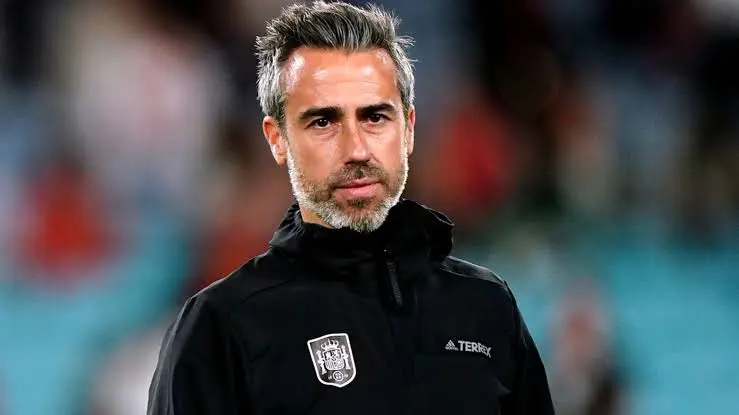Morocco’s women’s national team coach, Jorge Vilda, has dismissed notions of intimidation ahead of Saturday’s high-stakes clash with Nigeria in the 2024 Women’s Africa Cup of Nations (WAFCON) final. The Atlas Lionesses, hosting the tournament for the first time, will aim to secure their maiden continental title against Nigeria’s Super Falcons, a team with a record nine WAFCON trophies. The match, set for the Olympic Stadium in Rabat, pits emerging ambition against seasoned dominance.
Vilda publicly underscored Morocco’s confidence during a Friday press conference, addressing Nigeria’s formidable reputation head-on. “They’ve grown stronger as the tournament progressed and defeated tough opponents, but we will approach this final without any sense of inferiority,” he said. His remarks signal Morocco’s determination to leverage home support and their own tactical evolution after reaching the final for the second consecutive edition.
Nigeria, under interim coach Justine Madugu, enters the game with a near-flawless campaign, netting 11 goals while conceding just once across six matches. The Super Falcons’ roster includes star players like Barcelona’s Asisat Oshoala and Paris FC striker Chiamaka Nnadozie, reinforcing their status as continental powerhouses. Yet their path to the final saw narrow victories, including a penalty shootout win over South Africa in the semifinals, hinting at vulnerabilities Morocco may seek to exploit.
The Atlas Lionesses, meanwhile, have steadily risen in African women’s football, fueled by investment in domestic leagues and youth development. Their semifinal victory over Zambia marked another milestone, with captain Ghizlane Chebbak leading a squad blending local talent and Europe-based professionals. A win would not only make history for Morocco but also amplify the nation’s growing influence in the sport following the men’s team’s 2022 World Cup semifinal run.
For Nigeria, claiming a tenth title would reinforce their legacy while addressing recent criticism over administrative disputes and player welfare issues. The team’s defensive solidity and clinical attack have been central to their success, yet their reliance on individual brilliance—evident in Oshoala’s four tournament goals—could face a rigorous test against Morocco’s organized play.
The final also highlights contrasting trajectories in African women’s football. While Nigeria has long dominated the scene, Morocco’s rapid ascent reflects broader regional investments, including improved facilities and professional contracts for players. Saturday’s match, played before a sellout crowd in Rabat, is poised to be a landmark moment for both teams and the continent’s evolving football landscape.
With pride, history, and a 2024 FIFA Women’s World Cup qualification spot at stake, the showdown underscores a pivotal shift in competitive balance. As Vilda noted, Morocco’s lack of “fear” may stem from belief in their preparation—a sentiment that could redefine WAFCON’s hierarchy.
